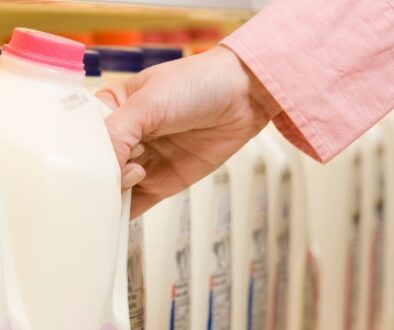FDA To Expand Infant Formula Options
As a result of the success of the enforcement discretion FDA has taken to address the infant formula shortage and interest suppliers have expressed in continuing to serve the U.S. market permanently, FDA announced the development of a new framework that will help provide for the long-term availability and marketing of these products.
“The need to diversify and strengthen the U.S. infant formula supply is more important than ever. The recent shutdown of a major infant formula plant, compounded by unforeseen natural weather events, has shown just how vulnerable the supply chain has become,” say FDA Commissioner Robert M. Califf and Center for Food Safety and Applied Nutrition (CFSAN) Director Susan T. Mayne in a joint statement.
FDA’s current flexibilities have enabled the agency to help dramatically increase infant formula supplies to address the shortage while also protecting the health of infants through requirements that suppliers produce documentation to demonstrate the safety and nutritional adequacy of the product. To date, this has resulted in a total estimated quantity of more than 400 million 8-ounce bottles worth of formula from nine countries for children in the United States. The enforcement discretion described in the May guidance is set to remain in effect until Nov. 14.
Most recently, FDA earlier this week announced it granted enforcement discretion to Vitaflo USA LLC (Nestlé Health Science) to provide specialty formula for infants with special medical needs. FDA also recently granted enforcement discretion for regular infant formula to Danone of New Zealand, Abbott Nutrition of Ireland and Bellamy’s Organic of Australia.
To create a more streamlined and long-term distribution pathway for products for which FDA is temporarily exercising enforcement discretion, FDA says it intends to:
- Provide a single technical assistance contact at FDA for any company aiming to enter the U.S. infant formula market, making it easier for potential new entrants to navigate FDA’s regulatory review process. This is similar to a practice commonly used by other FDA centers that has resulted in novel medical therapeutics entering the U.S. market in a more efficient manner. FDA hopes to encourage more entrants into the market, including new domestic firms.
- Host meetings this summer with companies that import, sell and/or distribute formula under FDA’s temporary enforcement discretion policy to determine what additional steps would be needed to provide a pathway to long-term, uninterrupted marketing for safe and nutritious formula.
- Provide a pathway for companies that import, sell and/or distribute formula under FDA’s temporary enforcement discretion policy to continue to supply infant formula to the United States past November. In September, FDA intends to issue further guidance on the topic of how companies that already have received temporary enforcement discretion could meet FDA requirements to continue to supply infant formula to the United States beyond that time.
“Ensuring that the youngest and most vulnerable individuals have access to safe and nutritious formula products is a top priority for the FDA,” Califf and Mayne say. “The FDA expects that our continued efforts will help infant formula manufacturers who are new entrants to the U.S. market better understand their options to continue producing and supplying formula to the U.S. in the weeks, months and years ahead.”
Keep Up To Date On Cheese Industry News
Find all of HART Design & Manufacturing current industry news here.
Source: CMN




